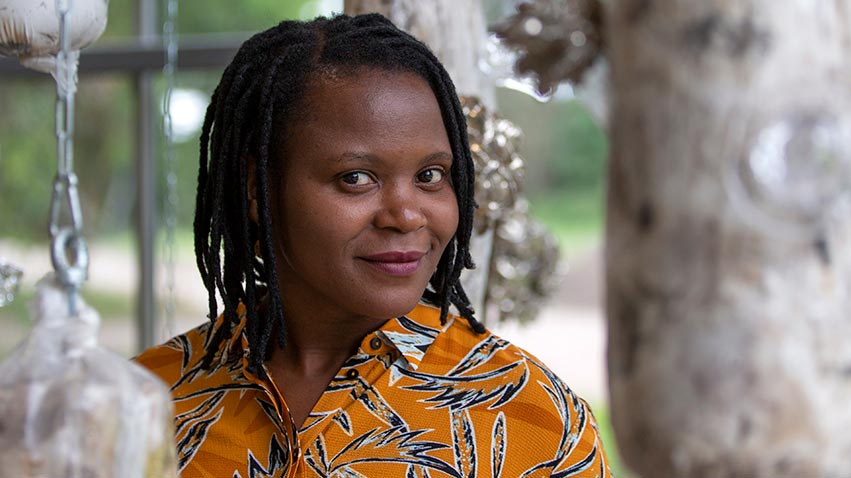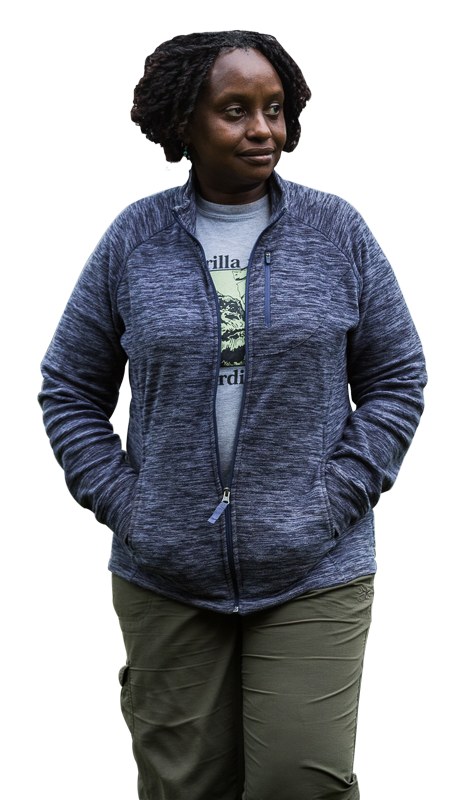Building resilient societies one mushroom at a time
Vulnerable people need hope—but they also need food and income. Chido Govera, a Zimbabwean social entrepreneur, farmer, and educator, uses mushrooms to provide all of that and more. For her innovation, empathy, energy and belief that complex problems like poverty sometimes need simple answers, Govera was awarded a 2022 Tällberg-SNF-Eliasson Global Leadership Prize as an emerging leader.
The idea that mushroom farming could be a solution to poverty in Zimbabwe came naturally to Govera, who was orphaned at a young age. Her grandmother had shown her how to forage for them in the forest outside of her village, teaching her which were edible and which were dangerous. Serendipity offered her the opportunity, as a young girl, to join a program where she learned how to farm oyster mushrooms using agro-biomass. She quickly realized that mushrooms could provide more than just food: they could provide a pathway to a better life.
New thinking for a new world
Govera, who is 36, has already accomplished much with that insight. Mushrooms are a fast-yielding crop that require less space, water, and energy than other crops. They are easy to cultivate and to harvest, so they provide both nutrition and income, and they can be grown at scale and commercialized. With the support of her network and friends, Govera quickly became an expert on mushroom cultivation as well as an innovator to improve the economics of mushroom farming. For example, she pioneered the use of coffee grounds—cheap and readily available almost everywhere—as a medium to grow mushrooms commercially.
Transformation in action
But Chido Govera wanted more than just to find her own way out of poverty; she wanted to help others, especially orphans, women and girls, who deserved better lives. That meant she needed to build a platform that could extend her work. The result: in 2013 she launched The Future of Hope Foundation. The Foundation, focused on orphans and women, works to help its vulnerable clients out of poverty through entrepreneurial and self-help initiatives. The core idea is to help people find sustainable food, nutrition and income security. While teaching and supporting mushroom farming remains the principal vehicle for doing that, the Foundation has begun complementary efforts in solarized water facilities, nutrition gardens, soil amelioration plots as well as chicken and cattle farming. The chicken and cattle farming projects draw inspiration from works of art emphasizing the improvement of genetic diversity through crossbreeding to create poultry and livestock that are more resilient and adaptable for local communities.
All this work, complemented by teaching and advocacy in Zimbabwe and in other emerging countries, aims to help people who are faced with the same difficult circumstances that the young Chido faced three decades ago. In her case, she used willpower and determination to leverage a simple idea into a better life. But her leadership rests on the conviction—which is already fact-based—that what worked for her can work for thousands, maybe millions of others in Zimbabwe and elsewhere in Africa.



Congratulations to Chido Govera for this well-deserved recognition!
Peter Wiers
Rotary Club Santpoort
The Netherlands
A well deserved award. Chido has given us her exemplary life story, inspiring hundreds… thousands of girls with her effort, work and personality who have received her light and energy to get ahead… and she has given us an example that a better world is possible. Chido has built a better world for her and motivates her to follow her example. Congratulations!!! great joy!! And it’s only the beginning???? Thanks Chido. Love you..
This is a well done job and a well deserved award for Chido
Congratulations.
”The vulnerable people need hope but they also need food and income.”
I am agree with this. Hope only can’t satisfy the vulnerable people when they have food they can Able to think what they do for income for tomorrow.
There is more than hope in one mushroom. People not only get nutrition, they gainfully engage in productive work as well as self-recognition, assurance and sustenance. Thanks so much for unleashing that potential.